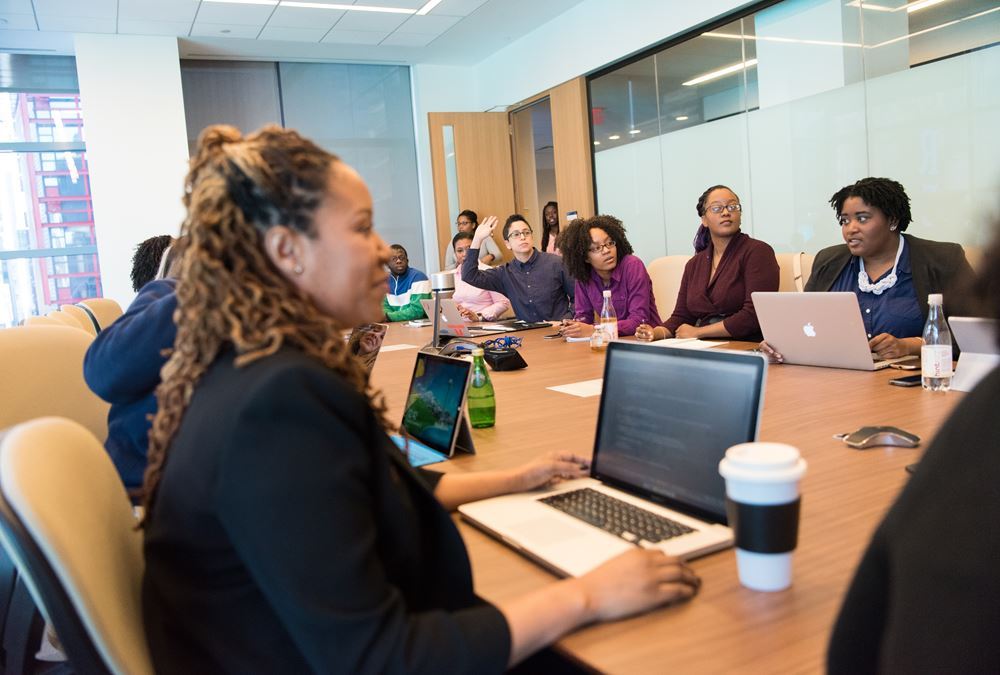- Home
- Business Processes
- Industry Knowledge
- Aerospace Industry
- Automotive Industry
- Banking Domain
- BFSI Industry
- Consumer/ FMCG Industry
- Chemicals Industry
- Engineering & Construction
- Energy Industry
- Education Domain
- Finance Domain
- Hospitality Domain
- Healthcare Industry
- Insurance Domain
- Retail Industry
- Travel and Tourism Domain
- Telecom Industry
- Leadership Skills
- eLearning
- Home
- Leadership
- Leadership Theories
- Participative Leadership Theories
Participative Leadership Theories
Participative leadership theories rely on the involvement of different participants and suggest that the ideal leadership style is one that takes the inputs of others into account. Participative leaders encourage participation and contributions from group members and involve them in the decision-making process. Participative leadership tries to achieve through people, teamwork and collaboration.
Related Links
You May Also Like
-
Transformational Theories of Leadership
Transformational leadership theories focus on the leadership approach where the leader encourages, inspires employees to innovate and create positive and valuable organizational change. A transformational leader works towards “transforming” the culture to one that cultivates trust, mutual admiration, loyalty, and respect with the end goal of developing followers into leaders. Transformational leaders are known to be visionary, inspiring, daring, risk-takers, and thoughtful.
-
Lewin’s Change Management Model
Lewin's change management model is a framework for managing organizational change. Lewin's methodology of different Leadership Styles recognizes three distinct stages of change - creating the perception; moving toward the new desired level of behavior and, ensuring new behavior as the norm.
-
Theory Z also called the "Japanese Management" style is a leadership theory of human motivation focused on organizational behavior, communication, and development. It assumes that employees want to enter into long term partnerships with their employers and peers. Offering stable jobs with an associated focus on the well-being of employees results in increased employee loyalty to the company.
-
Five Factors Model (FFM) also known as Five-Factor Personality Model is based on five broad personality traits which are extraversion, neuroticism, openness to experience, agreeableness, and conscientiousness represented by acronym OCEAN, these traits are often referred to as the “Big Five”.
-
The Path-Goal theory defines the characteristics of followers and organizational context and the corresponding leadership style best suited to these factors. A leader should adapt to a behavior that is most relevant for a given employee and work environment mix to achieve a goal. The application of theory drives increased employees' motivation, empowerment, and satisfaction resulting in increased productivity.
-
The Leader-Member Exchange Theory (LMX), also called the Vertical Dyad Linkage Theory is a relationship-based approach that focuses on the two-way (dyadic) relationship to get the best from all team members. How leaders maintain their position in groups and develop an exchange with each of their subordinates. How leaders and members develop relationships that can contribute to growth or hinder development.
-
Authentic leadership is a new approach to leadership in which leaders are genuine, self-aware, transparent, build honest relationships, and work on an ethical foundation. Authenticity is one of the core values of leadership. Authentic leaders have truthful self-concepts and they inspire by promoting openness by acting in a real, genuine, and sincere way. Authenticity requires self-awareness and the ability to act in accordance with one's true self.
-
Trait theories of leadership identify the specific personality traits that distinguish leaders from non-leaders. The trait model of leadership is based on the traits or characteristics of leaders that make them successful in their leading role. These theories use heritable attributes to predict leadership effectiveness.
-
Michigan Leadership Studies led to behavioral Leadership Theory as a result of a leadership study conducted at the University of Michigan. Michigan studies identified three important behaviors of leadership called task-oriented behavior, relationship-oriented behavior, and participative leadership. Two leadership styles associated with studies are employee orientation and production orientation.
-
Blake and Mouton Managerial Grid is a style leadership model that identified five manager styles based on two dimensions viz concern for people and the concern for production. Managerial Grid uses concern for production style which is largely based on McGregor's Theory X.
Explore Our Free Training Articles or
Sign Up to Start With Our eLearning Courses

About Us
Learning
© 2023 TechnoFunc, All Rights Reserved










